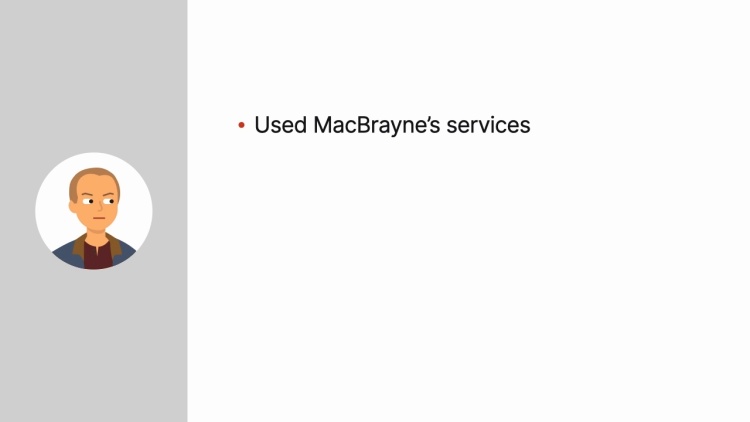McCutcheon v. David MacBrayne Ltd.
House of Lords
1 W.L.R. 125 (1964)

- Written by Sara Rhee, JD
Facts
Alexander McCutcheon (plaintiff) asked his brother-in-law, McSporran, to arrange to ship McCutcheon’s car from Islay to West Loch Tarbert onboard a vessel operated by David MacBrayne Ltd. (MacBrayne) (defendant). McSporran took the car to MacBrayne’s office, signed papers, and paid the shipping fees. Although it was MacBrayne’s customary practice to have consignors sign risk notes, which essentially placed the risk of loss on the owner, McSporran was not given a risk note to sign on that occasion. McSporran had consigned a variety of goods with MacBrayne on previous occasions but had only sometimes been required to sign a risk note. McCutcheon had also consigned a variety of goods on four previous occasions but was required to sign a risk note each time. Both McSporran and McCutcheon had been aware that when they did sign the risk note, they were agreeing to certain conditions. However, neither ever read the risk note nor knew they were agreeing to bear the risk of loss for the goods. While transporting McCutcheon’s car, the Lochiel negligently sailed into a rock and sank. McCutcheon’s car was unsalvageable. McCutcheon sued MacBrayne to recover the value of his car. MacBrayne argued it was immune from liability, because the conditions of the risk note applied. The trial judge found that MacBrayne failed to prove the terms of the risk note were applicable. MacBrayne appealed. The Second Division of the Court of Session found that the terms of the risk note did apply and that MacBrayne was not liable. McCutcheon appealed.
Rule of Law
Issue
Holding and Reasoning (Reid)
Concurrence (Devlin)
Concurrence (Hodson)
What to do next…
Here's why 907,000 law students have relied on our case briefs:
- Written by law professors and practitioners, not other law students. 47,100 briefs, keyed to 996 casebooks. Top-notch customer support.
- The right amount of information, includes the facts, issues, rule of law, holding and reasoning, and any concurrences and dissents.
- Access in your classes, works on your mobile and tablet. Massive library of related video lessons and high quality multiple-choice questions.
- Easy to use, uniform format for every case brief. Written in plain English, not in legalese. Our briefs summarize and simplify; they don’t just repeat the court’s language.





